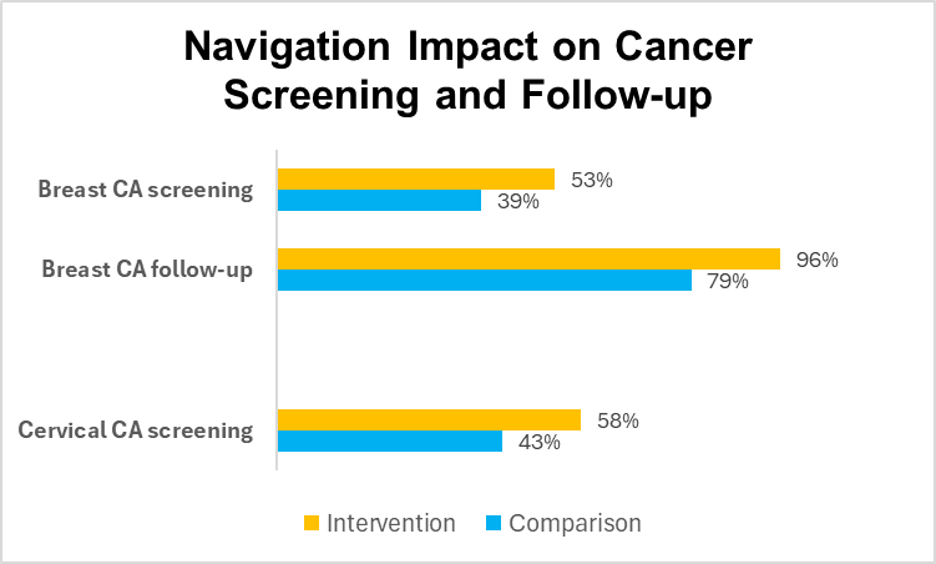Navigation program improves cancer screening and follow-up
June 24, 2025
Summary: A meta-analysis showed that navigation programs increased the likelihood of preventive screening for breast and cervical cancer, as well as improved follow-up of abnormal screening results for breast cancer.
Source: Nelson, et al JAMA Int Med June 9, 2025. The authors found higher follow up of abnormal cervical cancer screening with did not reach statistical significance (not shown)
Researchers performed a meta-analysis of 42 randomized clinical trials with 39,111 participants and found that patients who had access to navigation programs were statistically significantly more likely to get breast cancer screening and to get appropriate follow-up of abnormal findings. They also found that those with access to navigation programs were statistically significantly more likely to get cervical cancer screening, although follow-up of abnormal cervical cancer screening was increased but did not reach statistical significance.
There were a variety of different navigation programs included in these studies, and many navigation programs offered to employers have not been subject to peer-reviewed publication of randomized clinical trials.
Implications for employers:
Rates of cancer screening have improved over recent decades, assisted by waiver of cost-sharing for recommended cancer tests.
Still, many health plan members do not receive all evidence-based cancer screening for which they are eligible.
Lack of follow-up of abnormal cancer screening tests is a special challenge made more difficult because cost sharing is not waived for these follow-up tests. New rules will require plans to cover some additional breast cancer tests starting in January, 2026.
This study shows that navigation programs are a promising approach to improve cancer screening and follow-up.

